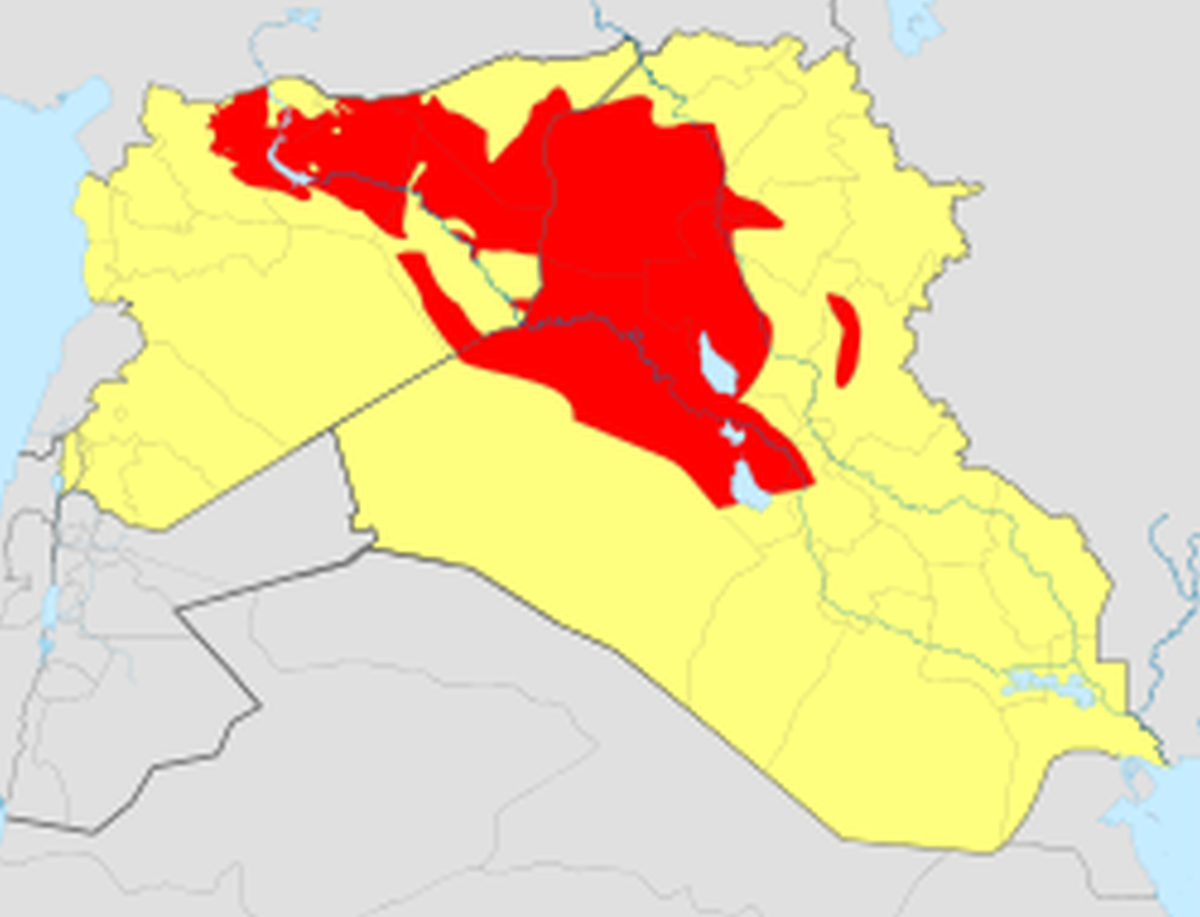 Mosul, Iraq, June 13 – Islamist militants stormed into the second-largest city in Iraq this week, sending the government’s troops fleeing or into hiding and surprising the West with the discovery that national borders imposed by European diplomats in 1920 in complete disregard of local sensibilities cannot be sustained without the unifying effect of a dictator’s oppressive regime.
Mosul, Iraq, June 13 – Islamist militants stormed into the second-largest city in Iraq this week, sending the government’s troops fleeing or into hiding and surprising the West with the discovery that national borders imposed by European diplomats in 1920 in complete disregard of local sensibilities cannot be sustained without the unifying effect of a dictator’s oppressive regime.
The militants, known as the Islamic State of Iraq and the Levant, often abbreviated as ISIS, now control portions of both Syria and Iraq, and the military forces of both embattled central governments have been hard-pressed to check their gains. Their success has also involved the exploitation of anti-western, anti-colonial sentiment, painting those who seek to preserve the old order as lapdogs of the European interlopers who imposed the unjust boundaries in the first place, taking the West and the idiotic by surprise.
During and after the First World War, Britain and France engaged in repeated negotiations over dividing the territories of the Ottoman Empire, which they aimed to dismantle. The 1920 San Remo Conference determined borders, later ratified by the League of Nations, of British and French mandates in various provinces of the Middle East. Those borders have posed severe problems since their inception, as local tribes and peoples have never embraced political or cultural separateness from their ethnic brethren across those lines. Nevertheless, western governments have sought to maintain the artificial unity and discreteness of the countries delimited by those borders, in further contempt of the people they divide or lump together. Now those western countries have been shocked into realizing that might not be a recipe for long-term stability.
In the case of Iraq, the artificial unity of Kurds, Sunnis, and Shiites was only made possible through foreign-backed despots who ruthlessly repressed dissent to keep sectarian divisions at bay. That status quo held sway until the 2003 toppling of Saddam Hussein; since then, bombings and other deadly violence have regularly exacerbated the tensions among those parties, each of which is happy to invoke anti-imperialist mantras, of course portraying the foe du jour as attempting to deprive them of sovereignty.
Though a majority in Iraq and neighboring Iran, Shiite Muslims are a minority through most of the rest of the region, and their conflict with the Sunnis transcends the artificial national borders. Similarly, the Kurds of northern Iraq have long yearned for self-determination, but the areas they inhabit are spread across Iran, Iraq, and Turkey, all of whose borders are artifacts of British and French imperialist ambitions. The West nevertheless seems thrown for a loop by recent developments, despite generations of agitation or outright conflict around these same issues.
Beyond Iraq and Syria, which has similar challenges, Lebanon remains a tinderbox of sectarianism, with Shiites, Druze, and Maronite Christians in a volatile power-sharing arrangement that has more than once exploded into war. Israel, which most inhabitants of the Middle East regard as an outpost of the same Western imperialism, sits on land that well into the 1930’s was widely considered by its Arab inhabitants a province of southern Syria, with the development of Palestinian nationalism per se only a reaction to Israel’s creation and expansion.
Western politicians and diplomats remain committed to maintaining the discreteness of artificial national identities, and of course continuously express shock when the people who actually live in those areas decline to accede.




